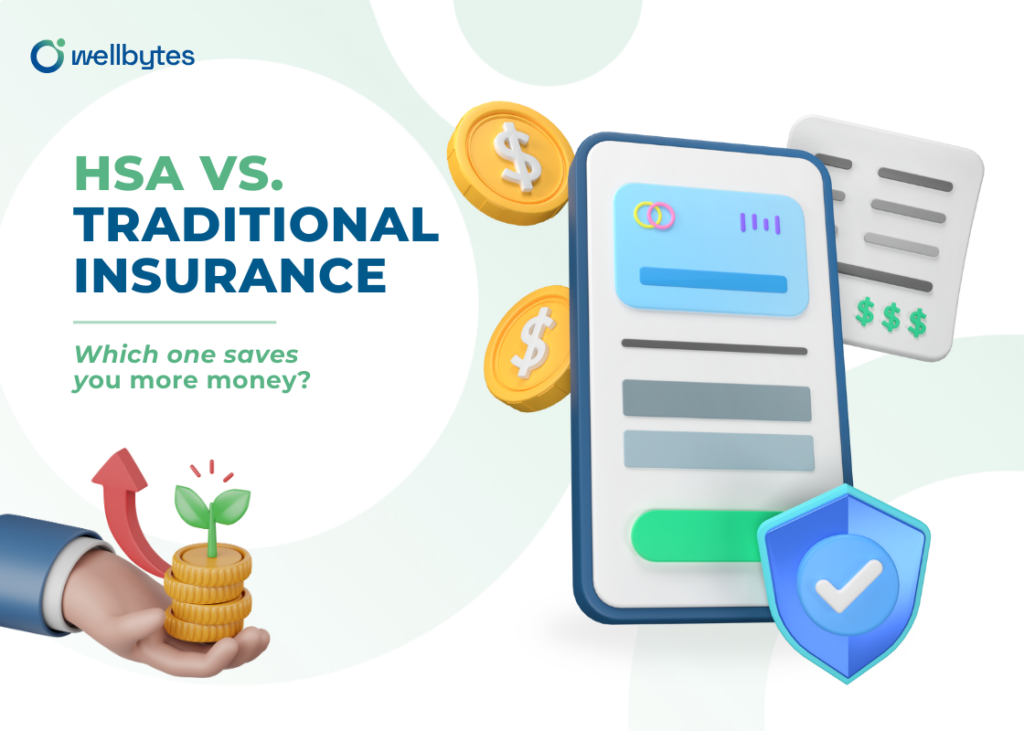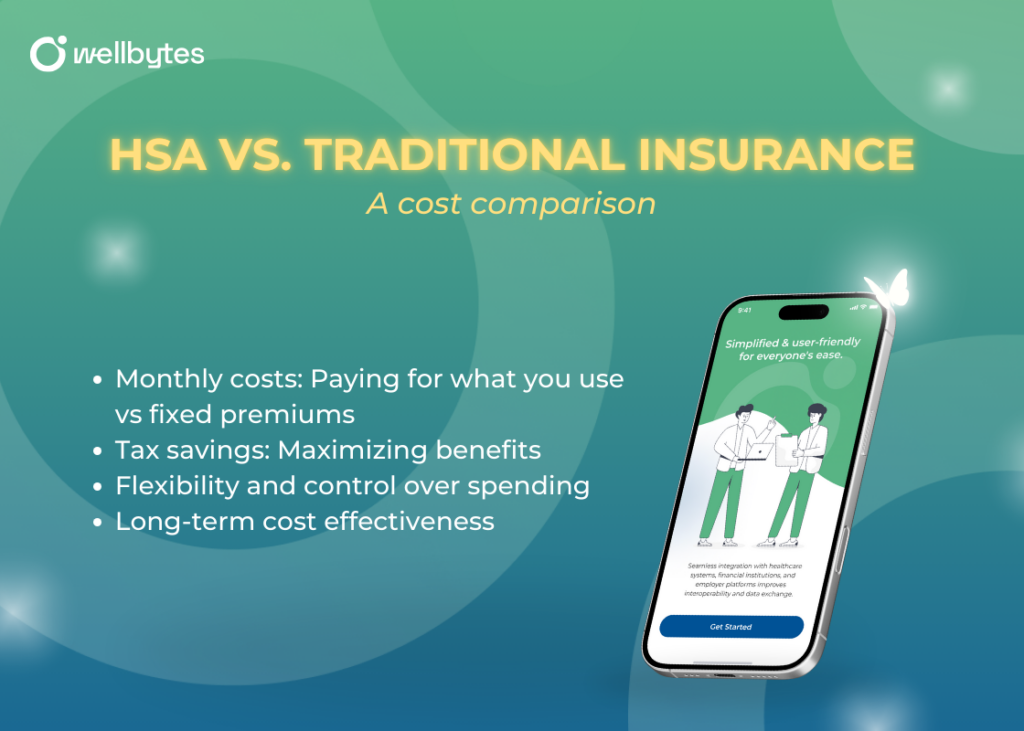When it comes to managing healthcare expenses in Canada, businesses and self-employed professionals often find themselves choosing between HSA vs. Traditional insurance. Both options offer valuable benefits, but when it comes to cost savings, flexibility, and tax efficiency, which one truly gives you the most financial advantage?
If you’re looking for a smarter way to cover healthcare costs while keeping more money in your pocket, understanding the differences between HSA vs. Traditional insurance is key. Let’s break it down.

The basics: What are HSAs and Traditional insurance?
What is a health spending account (HSA)?
A health spending account (HSA) is a tax-efficient way for businesses and self-employed professionals to pay for medical expenses. Employers contribute funds to the account, and employees can use those funds to cover eligible healthcare costs, including dental, vision, prescription medications, and paramedical services. Unlike traditional insurance, HSAs offer complete flexibility without restrictive coverage limitations.
Key features of HSAs:
- Tax-free reimbursements for employees
- 100% tax-deductible contributions for employers
- No monthly premiums or hidden fees
- Full control over how funds are used
- No expiry – funds can roll over depending on the employer’s plan
What is traditional health insurance?
Traditional health insurance involves paying monthly premiums to an insurance provider in exchange for coverage of various healthcare expenses. While insurance plans can provide peace of mind, they often come with restrictions, such as deductibles, co-pays, and non-covered services.
Key features of traditional insurance:
- Fixed monthly premiums regardless of usage
- Deductibles and co-pays required for services
- Coverage limits and exclusions
- Premiums increase over time
HSA vs. Traditional insurance: A cost comparison

Monthly costs: Paying for what you use vs fixed premiums
With an HSA, you only pay for healthcare expenses as they arise, meaning you’re not locked into costly monthly premiums. Employers can set their own budget and contribute based on actual healthcare usage rather than paying for unused coverage.
With traditional insurance, you pay a fixed premium every month, even if you don’t use any medical services. Over time, these premiums add up and can significantly outweigh the actual medical costs incurred.
Tax savings: Maximizing benefits
HSA vs. Traditional insurance differs significantly when it comes to tax benefits. HSAs offer 100% tax-deductible contributions for businesses and tax-free reimbursements for employees, making them a highly efficient way to manage healthcare costs.
On the other hand, traditional insurance premiums are often expensive, and while they may be deductible as a business expense, they don’t offer the same level of direct tax advantages as HSAs.
Flexibility and control over spending
One of the biggest advantages of an HSA vs. traditional insurance. is flexibility. With an HSA, employees can choose how to spend their healthcare funds, whether for dental work, prescription glasses, physiotherapy, or specialist consultations. However, it is important to note that HSAs do not cover Employee Assistance Programs (EAPs) or general counseling services unless provided by a licensed professional.
Traditional insurance, however, comes with set coverage limits, restrictions on certain treatments, and pre-determined co-pays. If a service isn’t covered, employees must pay out of pocket in addition to their monthly premiums.
Long-term cost effectiveness
With an HSA, any unused funds can roll over to the next year, ensuring that money is not wasted. In contrast, with traditional insurance, premiums are paid whether the services are used or not, making it a less cost-effective option over time.
Additionally, as insurance premiums tend to rise annually, businesses may find themselves paying more each year, whereas HSAs allow them to maintain a predictable and controlled healthcare budget.
Additional benefits of HSAs
Beyond cost savings, HSAs provide other advantages that make them a smart choice for businesses:
- Improved employee satisfaction: Employees appreciate having control over their healthcare spending, leading to higher job satisfaction and engagement.
- Attractive hiring incentive: Offering an HSA can make a business more competitive in attracting and retaining top talent.
- No wasted contributions: Unlike traditional insurance, where unused benefits expire, HSAs ensure that funds are available when needed.
- Covers a wide range of medical expenses: From routine care to specialized treatments, HSAs provide broad coverage without the limitations of traditional insurance.
Which one saves you more money?
If your goal is to minimize costs while maximizing flexibility and tax savings, HSAs offer a clear advantage. They allow businesses to tailor healthcare benefits to actual usage, eliminate unnecessary spending on premiums, and offer tax advantages that traditional insurance simply cannot match.
Traditional insurance may be a better fit for those who prefer predictable monthly costs and extensive coverage for major medical events. However, for small businesses, self-employed professionals, and those who want a more efficient healthcare spending strategy, HSAs provide superior financial benefits.
Why Wellbytes is the smart choice for HSAs
At Wellbytes, we specialize in helping Canadian businesses transition from costly traditional insurance plans to flexible, tax-efficient health spending accounts. Our digital platform makes it easy to set up, manage, and track healthcare expenses, ensuring that both employers and employees get the most value out of their benefits.
With Wellbytes, you get:
- No hidden fees or restrictive policies
- Automated claims processing for fast reimbursements
- Customizable spending limits tailored to your business needs
- Full tax advantages for employers and employees
Making the right choice
When weighing the benefits of HSA vs. Traditional insurance., the answer depends on your business goals and financial priorities. If you want cost savings, tax advantages, and control over your healthcare spending, an HSA is the way to go.
Want to explore how an HSA can benefit your business?
More about us!
More about our products.
Discover how Wellbytes can help you transition to a smarter, more cost-effective healthcare plan today!
